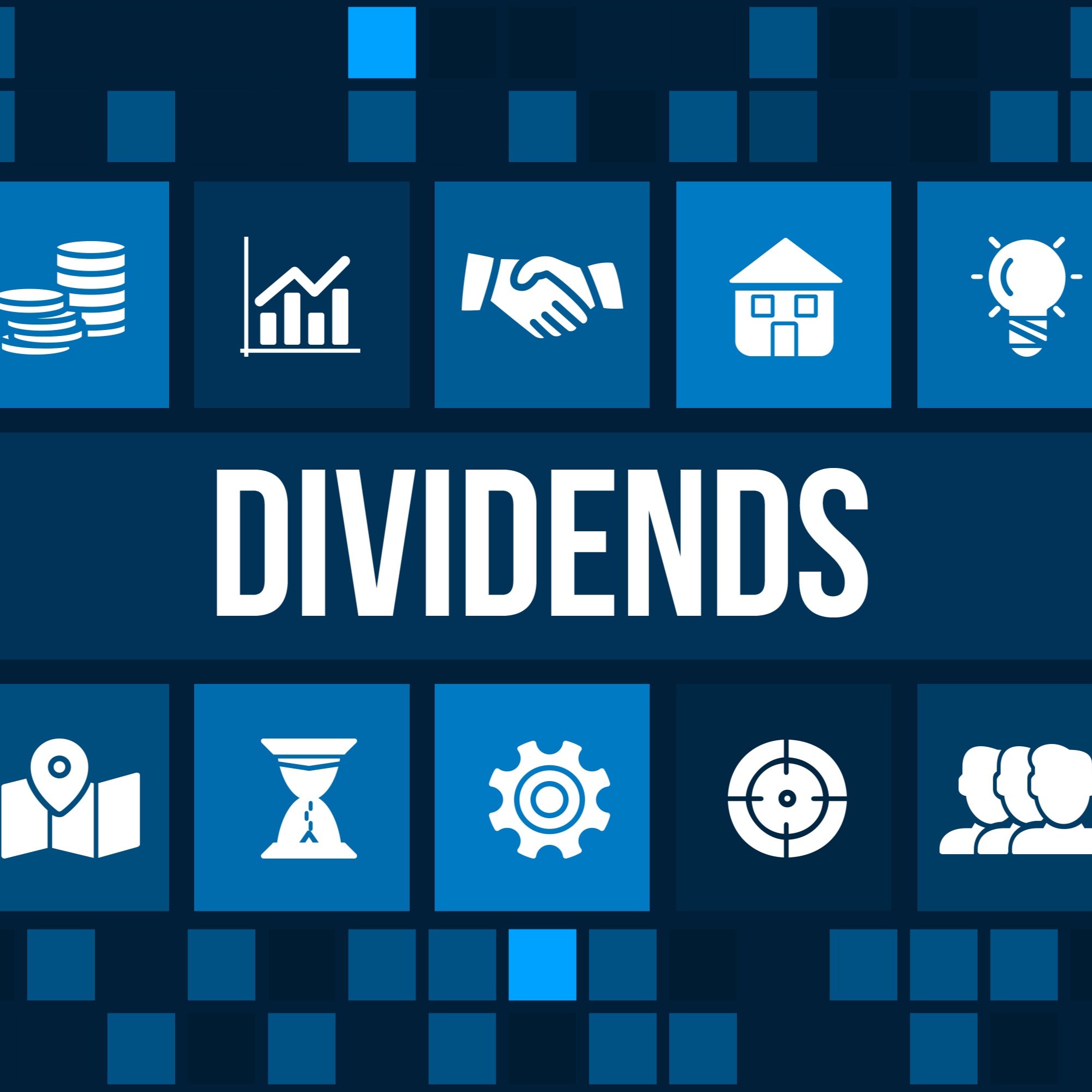
It is no secret that investors love dividends, and companies raising dividends are prized above and beyond others. The bull market is now seven and a half years old, and investors have grown to expect their top dividend stocks will make sure they keep growing those dividends. It is important to remember that dividends account for close to half of all shareholder returns through time as well.
Companies with safe dividends that can be raised and raised repeatedly are given more attention than companies that have manufactured earnings growth and stretched balance sheets. With the fourth quarter now about three weeks away, 24/7 Wall St. wanted to identify the companies from which we expect solid dividend news in the fourth quarter. We see at least these eight companies, most of which are blue chip stocks, to announce dividend hikes in the next 90 days or so.
Some of these hikes may not formally be paid until the first quarter of 2017, but that is normal. An effort also has been made to keep a focus on companies with a dividend history and to actually forecast how much each dividend may go up. We have considered adjusted earnings per share (EPS), foreign earnings dominating domestic earnings, payout ratios and even basic earnings valuation in this review.
Most Dow Jones Industrial Average stocks raise dividends. After all, they became Dow stocks for a reason. Dividends versus peers also mattered, as that could create less pressure to raise a payout. Here are eight companies likely to be on the dividend hike warpath with key dividend hike announcements before the end of 2016.
AT&T
AT&T Inc. (NYSE: T) has been raising dividends for so long that it is easily expected to be another dividend hiker before the end of the year. Most likely its hike will come in December, and a penny hike (to $0.49 from $0.48 per quarter) is likely all we should expect as telecom dividend hikes are less than in years past.
Interestingly, its DirecTV acquisition was likely to bolster the AT&T dividend, and the former Dow Jones Industrial Average component still outyields all 30 Dow stocks, even after Verizon just fired another shot in the dividend hike wars.
Shares of AT&T were last seen trading at $41.23, with a consensus analyst price target of $42.83 and a 52-week trading range of $31.85 to $43.89.
Boeing
Generally Boeing Co. (NYSE: BA) also hikes its dividend toward the end of the year, but those payouts do not come until after the start of each year. Boeing already was one of the largest buybacks in the Dow, and 2016 earnings are weighed down by slower global growth and charges related to its plane programs. If Boeing is certain it can rekindle earnings growth like analysts anticipate in 2017, then it may deliver a better hike than we expect. That $1.09 quarterly payout from Boeing may go up to $1.15, with a wait and see being signaled ahead.
Boeing shares closed most recently at $132.99, within a 52-week range of $102.10 to $150.59. Its consensus price target is $149.27.
Intel
Another dividend hike is expected from Intel Corp. (NASDAQ: INTC) in November. Its stock is close to a 52-week high already, but Intel has been noted for its cash overseas before. This might make a big boost unexpected, even if it is not even at half of its income being paid out. Another consideration is that Intel already yields an impressive 2.9% for its common holders. 24/7 Wall St. would put one caveat out there: Intel delivered a larger hike than we expected last year, so maybe we are just too conservative on estimates.
The most recent close at $36.56 compares to Intel’s consensus price target of $37.90 and a 52-week range of $27.68 to $36.60.
3M
3M Co. (NYSE: MMM) saw valuations get stretched after years of gains, and the dividend hike from December 2015 was more than 8% in its payout. That seems a reasonable expectation based on similar EPS growth. The announcement from August was that 3M has now paid a dividend for every year of the past 100 years, with 3M even hiking its dividend during the recession. That $1.11 quarterly payout may be raised to $1.20 or so, but that would represent more than 50% of next year’s EPS.
3M shares were last seen at $180.46, with a consensus price target of $181.85 and a 52-week range of $134.64 to $182.27.
McDonald’s
Not only has McDonald’s Corp, (NYSE: MCD) been aggressive in buybacks but it has committed to a higher payout. Its plan was $30 billion to be returned to holders, and it even took on debt to help. Last year’s dividend hike was 5% to $0.89 per share, and having a 3% yield already may not force it to be too aggressive. McDonald’s also pays out more than 60% of its expected earnings as well, and earnings growth is expected to be about 11% in 2017.
Maybe another 5% hike can be expected, but we might not expect it to be too aggressive, based on it already having telegraphed so many changes last year.
Shares closed on Tuesday at $117.25. The consensus price target is $129.45, and the 52-week range is $94.75 to $131.96.
Nike
Though Nike Inc. (NYSE: NKE) has delivered less than good news of late, back in November of 2015 it gave shareholders everything they could ask for. We expect a repeat here, with a buyback adjustment to boot. Nike is a Dow stock now, but its dividend yield of just 1.1% remains very unimpressive, even if you consider that its stock pulled back almost 20% from its high. Nike has a massive amount of business overseas, so it cannot count all of its earnings as eligible for dividends. Still, its payout ratio is about 30% on a trailing earnings basis.
Shares of Nike were trading most recently at $57.41, well down from the 52-week high of $68.19 from last November. The consensus price target now is $65.79, and the 52-week low is $51.48.
Starbucks
Though it has paid $0.20 per quarter for the past year, Starbucks Corp. (NASDAQ: SBUX) seems to make barely any noise about raising the dividend. Last year brought a 25% payout hike that was already close to half of its earnings at the time. If that holds true to expectations for earnings growth adjustments in the year ahead, then Starbucks would be a bit more conservative with a 20% hike to $0.24 per quarter.
Just keep in mind that Starbucks has bought back shares too at the same time that its international presence has grown, so it could decide to be more conservative in its hike efforts ahead.
The stock closed most recently at $56.02, with a consensus price target of $66.43 and a 52-week range of $52.63 to $64.00.
Disney
Walt Disney Co. (NYSE: DIS) remains in the 10 stocks to own for the decade. The owner of Marvel and Star Wars has seen its shares take a serious breather of late. Disney now pays its dividends twice a year instead of just once. The $1.42 annualized payment comes to a 1.5% yield, which is low while valuations are still somewhat high.
Disney has spent billions making acquisitions in recent years and its payout is about 27% of trailing earnings. Disney’s 12% projected earnings growth in 2016 and an expected 5% growth in 2017 may keep Disney from getting too crazy about dividend hikes. It seems that a semiannual payout of $0.71 per share may be raised to $0.75, or $1.50 per year. That could of course be a higher payout, but let’s not get too far out on expectations.
The stock was last seen trading at $93.80, within a 52-week range of $86.25 to $120.65. The consensus analyst target is $109.52.
It’s Your Money, Your Future—Own It (sponsor)
Are you ahead, or behind on retirement? For families with more than $500,000 saved for retirement, finding a financial advisor who puts your interest first can be the difference, and today it’s easier than ever. SmartAsset’s free tool matches you with up to three fiduciary financial advisors who serve your area in minutes. Each advisor has been carefully vetted and must act in your best interests. Start your search now.
If you’ve saved and built a substantial nest egg for you and your family, don’t delay; get started right here and help your retirement dreams become a retirement reality.
Thank you for reading! Have some feedback for us?
Contact the 24/7 Wall St. editorial team.





